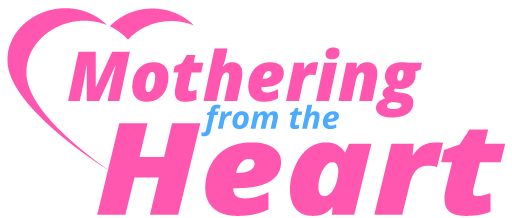Medications & Nursing
(Drugs and Breastfeeding)
Introduction
Over the years, far too many women have been wrongly told they had to stop breastfeeding. The decision about continuing breastfeeding when the mother takes a drug, for example, is far more involved than whether the baby will get any in the milk. It also involves taking into consideration the risks of not breastfeeding, for the mother, the baby and the family, as well as society. And there are plenty of risks in not breastfeeding, so the question essentially boils down to: Does the addition of a small amount of medication to the mother’s milk make breastfeeding more hazardous than formula feeding? The answer is almost always: Almost never. Breastfeeding with a little drug in the milk is almost always safer. In other words, being careful means continuing breastfeeding, not stopping.
Remember that stopping breastfeeding for a week may result in permanent weaning since the baby may then not take the breast again. On the other hand, it should be taken into consideration that some babies may refuse to take the bottle completely, so that the advice to stop is not only wrong, but often impractical as well. On top of that it is easy to advise the mother to pump her milk while the baby is not breastfeeding, but this is not always easy in practice and the mother may end up painfully engorged.
Breastfeeding and Maternal Medication
Most drugs appear in the milk, but usually only in tiny amounts. Although a very few drugs may still cause problems for infants even in tiny doses, this is not the case for the vast majority. Nursing mothers who are told they must stop breastfeeding because of a certain drug should ask the physician to make sure of this by checking with reliable sources and/or prescribing an alternative safe medication. In this day and age, it is rarely a problem to find a safe alternative. If the prescribing physician is not flexible, the mother should seek another opinion, but not stop breastfeeding.
Why do most drugs appear in the milk in only small amounts? Because what gets into the milk depends on the concentration in the mother’s blood and the concentration in the mother’s blood is often measured in micro- or even nano-grams per milliliter (millionths or billionths of a gram), whereas the mother takes the drug in milligrams (thousandths of grams) or even grams. Furthermore, not all the drug in the mother’s blood can get into the milk. Only the drug that is not attached to protein in the mother’s blood can get into the milk. Many drugs are almost completely attached to protein in the mother’s blood. Thus, the baby is not getting amounts of drug similar to the mother’s intake, but almost always, much much less on a weight basis. For example, in one study with paroxetine (Paxil), the baby got less than 0.3% of the drug for each kilogram of his weight than the mother did (the mother got over 300 micrograms per kg per day, whereas the baby got about 1 microgram per kg per day).
Most drugs are safe if:
They are commonly prescribed for infants. The amount the baby would get through the milk is much less than he would get if given directly.
They are considered safe in pregnancy. This is not always true, since during the pregnancy, the mother’s body is helping the baby’s get rid of drug. Thus it is theoretically possible that toxic accumulation of the drug might occur during breastfeeding when it wouldn’t during pregnancy (though this is probably rare). However, if the concern is for the baby’s merely getting exposed to a drug, say an antidepressant, then the baby is getting exposed to much more drug at a more sensitive time during pregnancy than during breastfeeding.
They are not absorbed from the stomach or intestines. These include many, but not all, drugs given by injection. Examples are gentamicin (and other drugs in this family of antibiotics), heparin, interferon, local anesthetics, omperazole.
They are not excreted into the milk. Some drugs are just too big to get into the milk. Examples are heparin, interferon, insulin,
The following are a few commonly used drugs considered safe during breastfeeding:
Acetaminophen (Tylenol, Tempra), alcohol (in reasonable amounts), aspirin (in usual doses, for short periods). Most antiepileptic medications, most antihypertensive medications, tetracycline, codeine, nonsteroidal anti-inflammatory medications (such as ibuprofen), prednisone, thyroxin, propylthiourocil (PTU), warfarin, tricyclic antidepressants, sertraline (Zoloft), paroxetine (Paxil), other antidepressants, metronidazole (Flagyl), omperazole (Losec), Nix, Kwellada.
Note: Though generally safe, fluoxetine (Prozac) has a very long half life (stays in the body for a long time). Thus, a baby born to a mother on this drug during the pregnancy, will have large amounts in his body, and even the small amount added during breastfeeding may result in significant accumulation and side effects. These are rare, but have happened. There are two options that you might consider:
Stop the fluoxetine (Prozac) for the last 4 to 8 weeks of your pregnancy. In this way, you will eliminate the drug from your body and so will the baby. Once the baby is born, he will be free of drug and the small amounts in the milk will not usually cause problems and you can restart the fluoxetine (Prozac).
If it is not possible to stop fluoxetine (Prozac) during your pregnancy, consider changing to another drug which does not get into the milk in significant amounts once the baby is born. Two good choices are sertraline (Zoloft) and paroxetine (Paxil).
Medications applied to the skin, inhaled (for example, drugs for asthma) or applied to the eyes or nose are almost always safe for breastfeeding.
Drugs for local or regional anesthesia are not absorbed from the baby’s stomach and are safe. Drugs for general anesthesia will get into the milk in only tiny amounts (like all drugs) and are extremely unlikely to cause any effects on your baby. They usually have very short half lives and are eliminated extremely rapidly from your body. You can breastfeed as soon as you are awake and up to it.
Immunizations given to the mother do not require her to stop breastfeeding. On the contrary, the immunization will help the baby develop immunity to that immunization, if anything gets into the milk. In fact, most of the time nothing does get into the milk, except, possibly some of the live virus immunizations, such as German Measles. And that’s good, not bad.
X-rays and scans. Ordinary X-rays do not require a mother to stop breastfeeding even when used with contrast (example, intravenous pyelogram). The reason is that the material does not get into the milk, and even if it did it would not be absorbed by the baby. The same is true for CT scans and MRI scans. You do not have to stop for even a second.
What about radioactive scans?
We do not want babies to get radioactivity, but we rarely hesitate to do radioactive scans on them. When a mother gets a lung scan, or lymphangiogram with radioactive material, or a bone scan, it is usually done with technetium (though other materials are possible). Technetium has a half life (the length of time it takes for � of all the drug to leave the body) of 6 hours, which means that after 5 half lives it will be gone from the mother’s body. Thus, 30 hours after injection all of it will be gone and the mother can nurse her baby without concern about his getting radiation. But does all the radioactivity need be gone? After 12 hours, 75% of the technetium is gone, and the concentration in the milk very low. I think that after most radioactive scans, the mother can continue breastfeeding, but if she and her physician are truly concerned, waiting 2 half lives is enough, for a material such as technetium. Note that if the mother is getting the scan during the first few days after the baby’s birth, the baby will get much less because the baby gets much less milk during this time. During this early period, I believe no interruption of breastfeeding is necessary or desirable. Colostrum is desirable for the baby.
If you decide that interruption of breastfeeding is the best course to follow, then express milk for several days in advance (if you have advance warning about the test). Only occasionally is a radioactive scan that urgent that it cannot be delayed for a few days.
Thyroid scans are different. Radioactive iodine is concentrated in milk and will be ingested by the baby and it will go to his thyroid where it will stay for a long time. This is definitely of concern. So, the mother will have to stop breastfeeding? No, because often the test does not need to be done. Differentiating postpartum thyroiditis from Graves’ Disease (the most common reason for doing the scan in nursing mothers) does not require a thyroid scan. Get more information from the clinic. If a scan needs to be done, it is possible to do a thyroid scan with technetium.
You Should Continue Breastfeeding (2)
(Illness in the mother or baby)
Introduction
Over the years, far too many women have been wrongly told they had to stop breastfeeding. The decision about continuing breastfeeding when the mother takes a drug, for example, is far more involved than whether the baby will get any in the milk. It also involves taking into consideration the risks of not breastfeeding, for the mother, the baby and the family, as well as society. And there are plenty of risks in not breastfeeding, so the question essentially boils down to: Does the addition of a small amount of medication to the mother�s milk make breastfeeding more hazardous than formula feeding? The answer is almost always: Almost never. Breastfeeding with a little drug in the milk is almost always safer. In other words, being careful means continuing breastfeeding, not stopping.
Remember that stopping breastfeeding for even a short period of time may result in permanent weaning since the baby may then not take the breast again. On the other hand, it should be taken into consideration that some babies may refuse to take the bottle completely, so that the advice to stop is not only wrong, but often impractical as well. On top of that it is easy to advise the mother to pump her milk while the baby is not breastfeeding, but this is not always easy in practice and the mother may end up painfully engorged.
Illness in the Mother
Very few maternal illnesses require the mother to stop breastfeeding. This is particularly true for infections the mother might have, the most common type of illness for mothers are being told they must stop. Most infections are caused by viruses, and most infections due to viruses are most infectious before the mother even has an idea she is sick. By the time the mother has fever (or runny nose, or diarrhea, or cough, or rash, or vomiting etc), she has probably already passed on the infection to the baby. However, breastfeeding protects the baby against infection, and the mother should continue breastfeeding, in order to protect the baby. If the baby does get sick, which is possible, he is likely to get less sick than if breastfeeding had stopped. But often mothers are pleasantly surprised that their babies do not get sick at all. The baby was protected by the mother�s continuing breastfeeding. Bacterial infections (such as “strep throat”) are also not of concern for the very same reasons.
See previous handout on Drugs and Breastfeeding (#9a) with regard to continuing breastfeeding while taking medication.
The only definite exception to the above is HIV infection I the mother. Until we have further information, it is generally felt that the mother who is HIV positive not breastfeeding, at least in the situation where the risks of artificial feeding are considered acceptable. There are, however, situations, even in Canada, where the risks of not breastfeeding are elevated enough that breastfeeding should not be automatically ruled out. The final word is not yet in. Indeed, recently information came out that exclusive breastfeeding protected the baby from acquiring HIV better than formula feeding and that the highest risk is associated with mixed feeding (breastfeeding + artificial feeding). This work needs to be confirmed.
Antibodies in the milk
Some mothers have what are called “autoimmune diseases”, such as idiopathic thrombocytopenic purpura, autoimmune thyroid disease and many others. These illnesses are characterized by antibodies being produced by the mother against her own tissues. Some mothers have been told that because antibodies get into the milk, the mother should not breastfeed as she will cause illness in her baby. This is incredible nonsense.
The antibodies that make up the vast majority of the antibodies in the milk are of the type called secretory IgA. Autoimmune diseases are not caused by secretory IgA. Even if they were, secretory IgA is not absorbed by the baby. There is no issue. Continue breastfeeding.
Breast Problems
Mastitis (breast infection) is not a reason to stop breastfeeding. In fact, the breast is likely to heal more rapidly if the mother continues breastfeeding on the affected side. (see handout #22 Blocked Ducts and Mastitis)
Breast abscess is not a reason to stop breastfeeding, even on the affected side. Although surgery on a lactating breast is more difficult, the surgery and the postpartum course do not necessarily become easier if the mother stops breastfeeding, as milk continues to be formed for weeks after stopping breastfeeding. Indeed, engorgement after surgery only makes things worse. Make sure the surgeon does not do an incision around the areola (the line between the dark part of the breast and the lighter part). Such an incision may decrease the milk supply considerably.
Any surgery does not require stopping breastfeeding. Is the surgery truly necessary now, while you are breastfeeding? Are you sure that other treatment approaches are not possible? Does that lump have to be taken out now, not a year from now? If so, make sure again the incision is not made around the areola. You can continue breastfeeding after the surgery is over, immediately, as soon as you are awake and up to it. If, for some reason, you do have to stop on the affected side, do not stop on the other. Amazingly some surgeons do not know that you can dry up on one side only.
Mammograms are more difficult to read if the mother is breastfeeding, but can still be useful. Once again, how long must a mother wait for her breast no longer to be considered lactating? Evaluation of a lump that requires more than history and physical examination can be done by other means besides a mammogram (for example, ultrasound, needle biopsy). Discuss the options with your doctor. Let him/her know breastfeeding is important to you.
New Pregnancy
There is no reason that you cannot continue breastfeeding if you become pregnant. There is no evidence that breastfeeding while pregnant does any harm to you, or the baby in your womb or to the one who is nursing. If you wish to stop, do it slowly, though, because pregnancy is associated with a decreased milk supply, the baby may stop on his own.
Illness in the Baby
Breastfeeding rarely needs to be discontinued for infant illness. Through breastfeeding, the mother is able to comfort the sick child, and, by breastfeeding, the child is able to comfort the mother.
Diarrhea and vomiting. Intestinal infections are rare in exclusively breastfed babies. (Though loose bowel movements are very common and normal in exclusively breastfed babies.) The best treatment for this condition is to continue breastfeeding. The baby will get better more quickly while breastfeeding. The baby will do well with breastfeeding alone in the vast majority of situations and will not require additional fluids such as so called oral electrolyte solutions except in extraordinary cases.
Respiratory illness. There is a medical myth that milk should not be given to children with respiratory infections. Whether or not this is true for milk, it is definitely not true for breastfeeding.
Jaundice. Exclusively breastfed babies are commonly jaundiced, even to three months of age, though usually, the yellow colour of the skin is barely noticeable. Rather than being a problem, this is normal. (There are causes of jaundice that are not normal, but these do not, except in very rare cases, require stopping breastfeeding.) If breastfeeding is going well, jaundice does not require the mother to stop breastfeeding. If the breastfeeding is not going well, fixing the breastfeeding will fix the problem, whereas stopping breastfeeding even for a short time may completely undo the breastfeeding. Stopping breastfeeding is not an answer, not a solution, not a good idea. (See handout #7 Breastfeeding and Jaundice.)
A sick baby does not need breastfeeding less, he needs it more!!
If the question you have is not discussed above, do not assume that you must stop breastfeeding. Do not stop. Get more information. Mothers have been told they must stop breastfeeding for reasons too inane to discuss.
Handout #9b. You Should Continue Breastfeeding (2) (Illness in the mother or baby). January 2000
handout #9a. You Should Continue Breastfeeding (1) (Drugs and Breastfeeding). January 2000
Written by Jack Newman, MD, FRCPC
May be copied and distributed without further permission


